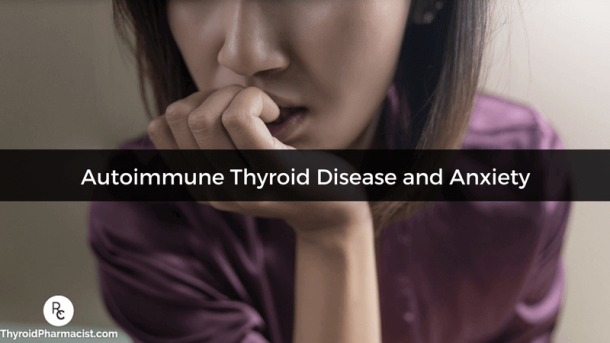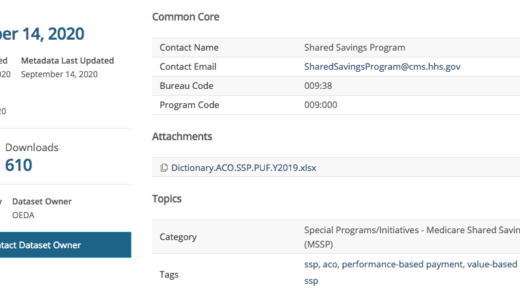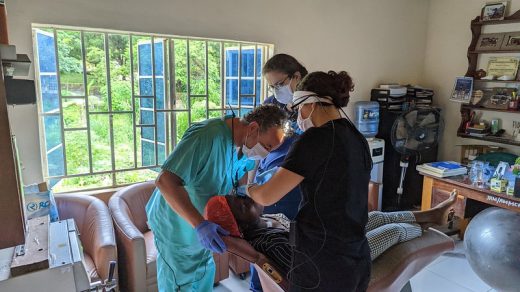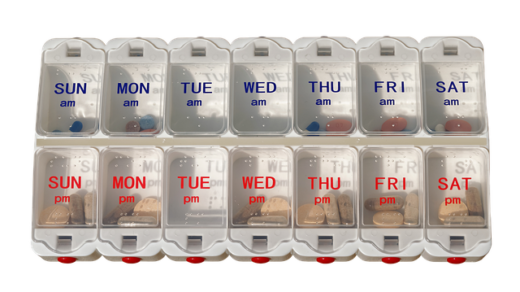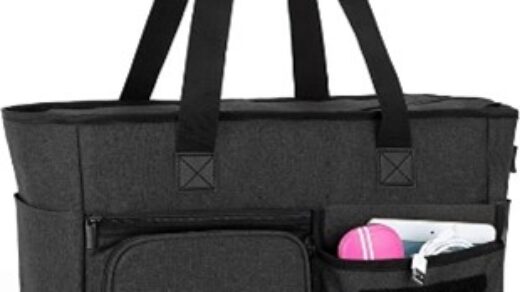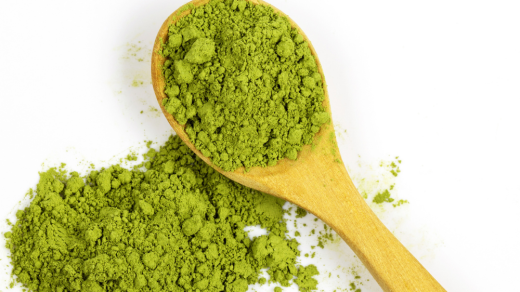Anxiety was one of the most challenging and disempowering symptoms I experienced when I was first diagnosed with Hashimoto’s. It changed my life dramatically and made me feel like a shell of my former self. I had always been an outspoken, level-headed and calm person, but sometime in 2005, something called “new-onset anxiety” rocked my world.
I was scared.
I couldn’t deal with life.
I was in a constant state of overwhelm, and I doubted myself.
A lifelong social butterfly, I suddenly found myself feeling socially awkward and uncomfortable in groups of strangers (and even friends). I resisted sharing my thoughts and opinions with colleagues and those in my personal life… because I feared I would be judged and ridiculed.
I was always on edge, waiting for something bad to happen. I would almost jump out of my seat when people came into my office at work!
I was a newlywed when this started happening. My husband would go out jogging, and if he was still out after thirty minutes had passed, I would be crying on the floor, worried that he got hit by a car (or worse, ran off with another woman!). I knew that I was completely irrational, but I was not able to control my thoughts and emotions.
I thought I might have had a new-onset anxiety disorder, so I saw a doctor who prescribed anxiety medications for me. I didn’t take them on a regular basis because they have the potential to become addictive, but I kept them in my purse at all times when I left the house, because there were times when I felt like I couldn’t deal with anything without them.
Of course, these medications did not get to the root cause – they were just a band-aid – and I eventually found a way to address my anxiety through the same means I had learned to address the health of my thyroid gland.
In this article, I’d like to explore the connection between Hashimoto’s and anxiety. I’ll cover:
- Do your symptoms indicate you have anxiety?
- The conventional approach to treating anxiety
- Discovering the root cause of anxiety
- Solutions to treat your anxiety naturally
- Advanced solutions when nothing else seems to be helping
Do You Struggle With Anxiety?
Awhile back, I was speaking to a wonderful woman who was struggling with anxiety. She had already seen some major improvements with her Hashimoto’s through the use of thyroid medications as well as eating a Paleo diet, yet her anxiety persisted.
Most people are unaware of how frequently anxiety occurs with Hashimoto’s. A study in 2004 found an association between the presence of a mood or anxiety disorder, and the presence of anti-TPO antibodies. [1] It also noted that a slight reduction in thyroid hormone secretion (such as that found in subclinical hypothyroidism) may affect mood as well. Therefore, it’s possible that the anxiety you are feeling is related to your thyroid. In fact, Trudy Scott, a nutritionist who specializes in anxiety, reports that up to 50 percent of her clients with anxiety have Hashimoto’s!
Let me ask you…
- On a regular or frequent basis, do you have anxiety or feel stressed and overwhelmed?
- Do you get panic attacks, or feel awkward and uncomfortable in social situations?
- Do you have obsessive thoughts or behaviors?
- Do you have a busy mind that won’t switch off, or negative self-talk and problems sleeping?
- Do you find yourself eating to calm stressful emotions?
These anxiety symptoms are very common in people with thyroid disorders. I know how awful anxiety and overwhelm can feel, so I’m excited to share that there is a way out, and you don’t have to feel this way forever.
The Conventional Approach to Anxiety
The conventional approach to treating anxiety focuses on using medications, including SSRIs (selective serotonin reuptake inhibitors: Prozac, Zoloft, Lexapro, etc.) and anxiolytic medications like benzodiazepines (Ativan, Xanax, etc.).
There are many well-documented side effects of antidepressants and benzodiazepines, ranging from the rare but serious – suicidal ideation/action, homicidal ideation/action, and even death – to the very common – brain fog, weight gain, sexual dysfunction, and feeling disconnected from reality. [2] And as you may have guessed, I don’t think that anxiety is caused by a “Prozac deficiency” or a “benzodiazepine deficiency,” so using them to treat anxiety will only mask the symptoms, rather than address the root cause.
As a pharmacist who once specialized in psychiatry, I believe that most medications have their time and place. If medications can help someone feel better and get through a difficult time in their lives while the benefits outweigh the risks, then we should consider their use. But after my own personal journey with taking back my health and training in functional medicine, I now have an interest in helping people address the root causes of their anxiety and look for solutions that are based on lifestyle interventions (and are free of side effects).
Unconventional Approaches to Anxiety
People do various things in an attempt to control their feelings of anxiety, fear, irritability, obsessive thoughts, frustration, or “impending doom,” as panic attacks have been described by some.
Some people turn to alcohol to self-medicate their anxiety. This is especially common in the situation of social anxiety. Alcohol can lower our natural levels of inhibition while also making us less self-conscious and more bubbly. Unfortunately, this can lead to a dependence on alcohol, and doesn’t resolve the underlying root cause of why we are anxious in the first place.
Some of my readers have sworn by using cannabis for anxiety. While I appreciate and value the role of medical marijuana for various conditions, marijuana in itself is not usually an ideal choice for people with Hashimoto’s. While various strains with various properties of marijuana exist, in many cases, marijuana may also have undesirable side effects, such as forgetfulness, paranoia, fatigue, and getting “the munchies.” Not exactly an ideal treatment for a person with brain fog, anxiety, and weight struggles!
Additionally, in my experience, the long-term use of marijuana can produce or exacerbate apathy, which has been coined as “amotivational syndrome.” I know for many of my clients with Hashimoto’s, the lack of motivation and apathy are already very stressful symptoms.
I’ll never forget a client I saw in my early days as a consultant pharmacist. He was a young man who was smart, handsome and well loved, yet he had a difficult time becoming motivated. He initially came in for a consultation with his father to ask me about whether any of the psychotropic medications (antidepressants) he was taking could contribute to his lack of motivation.
While medication side effects are always a possibility, the big elephant in the room was that he used marijuana every day, even starting his mornings with smoking. His father was surprised that the marijuana could have this effect on his son, as he had used it himself for stress, yet it did not impact his own motivation. We have to remember that every person’s chemistry and situation is different, and we don’t always respond the same way to the same substances!
And of course, another obvious reason why I don’t recommend cannabis for most people with Hashimoto’s is because it’s still illegal in most places!
The Root Cause Approach to Anxiety
On a grand scale, anxiety, just like most other symptoms we experience, is a sign that something is out of balance within our bodies or our lives.
Anxiety could result from blood sugar imbalances, thyroid hormone abnormalities, an autoimmune attack on the thyroid gland, nutrient deficiencies, food sensitivities, and even other root causes, such as toxins and chronic infections.
Another common root cause of anxiety can be linked to our stress response. If we’ve had traumatic experiences in our lives, this may predispose us to be more anxious and hypervigilant. [3] If we have current situations that are outside of our coping strategies, we may also feel more anxious.
People with anxiety often experience an imbalance in their hormones and neurotransmitters – the chemical messengers that regulate the systems in our bodies. [4] GABA, cortisol, and serotonin all play important roles in brain function, and may be out of balance in people who deal with chronic anxiety.
My approach to anxiety is to address the underlying root causes, as well as use targeted approaches that are safe and effective, to rebalance the brain and body patterns. While the root causes of anxiety may vary from person to person, there are several strategies that work quickly for most people and are easy to implement into one’s daily life.
I love starting with interventions that you can do on your own that don’t require fancy detective work. These include using food and nutrients to balance your mood!
Addressing nutrition and the stress response are fundamental strategies that I’ve found will help 60-80 percent of people overcome anxiety. In some cases, just one of the changes below will be sufficient. For best results, I recommend making all of them a part of your day-to-day life!
For more guidance on supporting your adrenals and your body’s stress response, I recommend checking out my newest book, Adrenal Transformation Protocol. The book provides a four-week program that has proven to be transformative for anxiety, with 86 percent of participants reporting reduced anxiety. It’s available for preorder now.
The Fundamental Anxiety Reduction Strategies
1. Balance Your Blood Sugar
One of the most important strategies to reduce your anxiety involves addressing blood sugar issues. Blood sugar swings can put us on an emotional rollercoaster. After consuming carbohydrate-rich foods, some people find their blood sugar goes up too high, too quickly.
This leads to a rapid, sometimes excessive release of insulin (a hormone that regulates blood sugar levels). These insulin surges can cause low blood sugar, which can cause unpleasant symptoms such as anxiety, nervousness, lightheadedness, fatigue, excessive hunger, and irritability (or feeling “hangry”, as I like to call it). [5]
You can help balance your blood sugar by reducing your intake of carbohydrates, and increasing your protein and fat intake. A low-carb or ketogenic diet (a low-carb diet where the body breaks down fats for fuel instead of relying on carbohydrates) could be beneficial for some.
Oftentimes, breakfast can make or break your whole day. I recommend starting the day off right by having a breakfast that is filled with good fats (for example, avocado or coconut milk), as well as a good source of protein, while limiting your intake of sugars (even from fruit).
Some breakfast options include eggs with avocados, burger patties, and protein and fat-based smoothies. My Root Cause Green Smoothie, which can be made with Rootcology Organic Pea Protein Powder, is an option I created specifically with the intention of keeping blood sugar balanced. I’ve developed a specific protein powder that is also Autoimmune Paleo friendly: my Al Paleo Protein. Both of these protein-rich powders can be added to your daily smoothie!
While skipping breakfast with intermittent fasting can be a fantastic way for some people to feel better, lose weight and reset their bodies, it can be an absolute mood rollercoaster for people with imbalanced blood sugar and adrenal issues (which is the case for most people with Hashimoto’s), and I don’t usually recommend it. The only exception would be for those who are already keto-adapted and are burning ketones instead of sugar for fuel.
In addition to a good breakfast, I recommend eating frequent protein and fat-containing meals and snacks, to balance your blood sugar throughout the day. Adding fats like coconut oil into your beverages throughout the day can also make you feel more calm and collected. (Just make sure that the beverages are not too hot when you decide to sip on them, as the hot coconut oil could burn your tongue and mouth. #thingsIlearnedthehardway)
Finally, amino acid supplements can help with stabilizing your blood sugar, lessening anxiety. I recommend Amino-NR or Free Form Amino Caps to be taken three times per day. Others have also benefited from using L-Glutamine for low blood sugar (starting with 500 mg per day).
Balancing my blood sugar made a big difference for me, helping with my anxiety levels and reducing my thyroid antibodies. I have written an article that goes into greater depth about balancing blood sugar, and I also developed blood sugar rules I personally follow to stay balanced.
In fact, blood sugar balance is one of the key strategies I talk about in my newest book, Adrenal Transformation Protocol. The book outlines a four-week program designed to help you balance your stress response and increase your resilience, and when you do this, you can reduce anxious feelings as well.
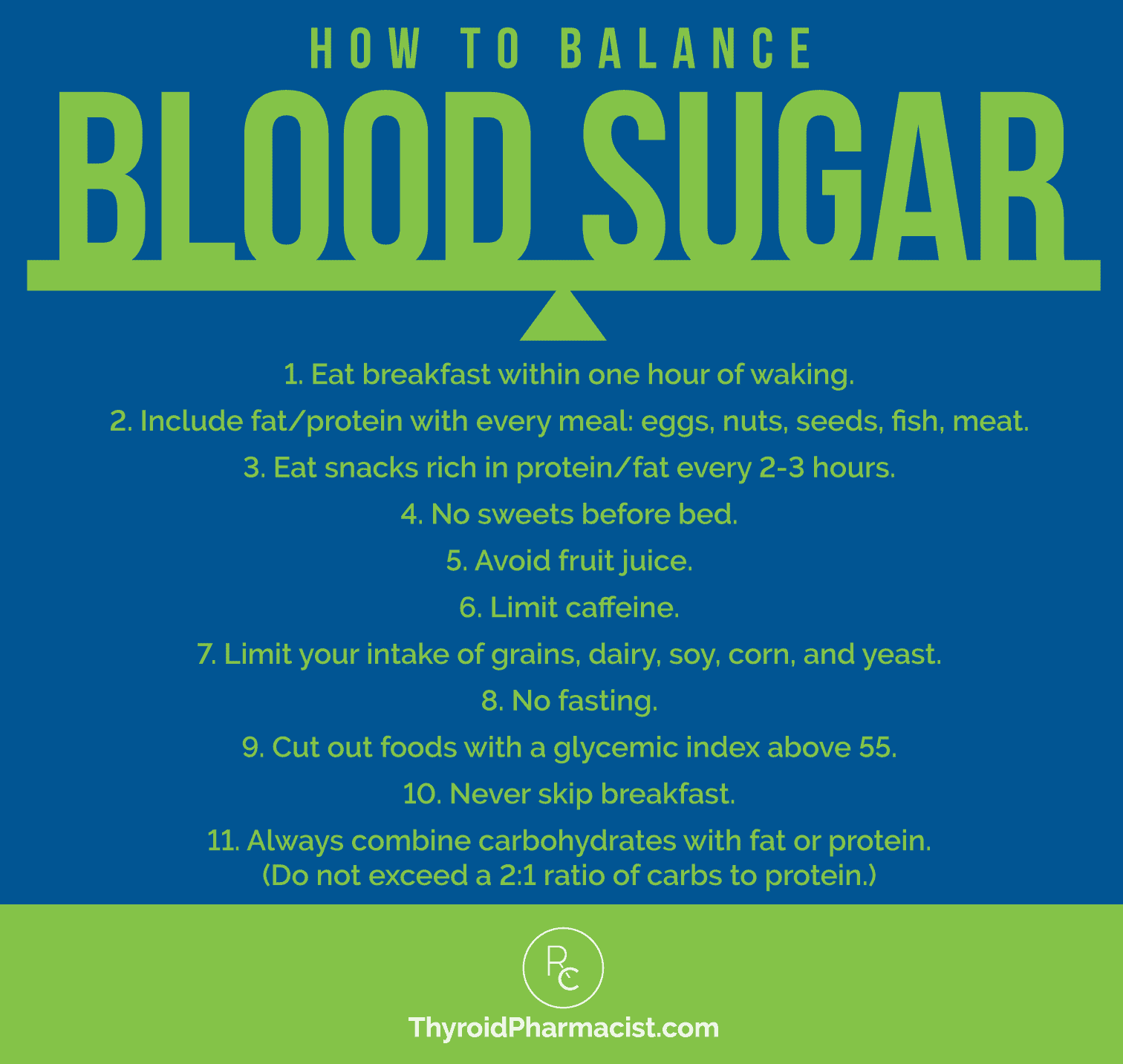
2. Reduce Your Caffeine Intake
If you’re currently drinking coffee, soda, green tea, or black tea, removing or reducing your intake of caffeine can be helpful. Caffeine is a stimulant that can make us feel edgy. It can also lead to heart palpitations and increased feelings of anxiety. [6] I know that personally, I have a limit to how much caffeine I can have in a day until I become anxious.
Some people, who are slow metabolizers of caffeine and do not clear it effectively out of their body, may not be able to have any caffeine at all – not even chocolate! (If this is you, I recommend trying carob, which is a tasty, caffeine-free, Autoimmune Paleo-friendly chocolate substitute.)
Others, who are fast metabolizers and are able to clear caffeine more quickly from their bodies, may be able to tolerate more daily caffeine without it impacting their anxiety levels.
Regardless of your genes and metabolism of caffeine, the weaker your adrenals and the more unbalanced your blood sugar levels are, the more likely you are to experience anxiety from caffeine. This is because caffeine forces more glucose to be produced by the liver, sending the body on a blood sugar rollercoaster that can trigger anxiety. [7]
I happen to be a fast metabolizer, so I can tolerate some caffeine, but I was really overdoing it around the time of my initial Hashimoto’s diagnosis. I used to drink caffeinated beverages six to eight times per day, including at bedtime. I wasn’t aware of how much caffeine was impacting me, until one of my doctors suggested I cut back. One of my biggest complaints was that my sleep was often too light. The slightest noises would wake me up. I was shocked when cutting down on caffeine resolved this issue completely.
Other clients have been able to eliminate their symptoms of anxiety, as well as headaches, palpitations, insomnia, and frequent urination, by cutting back on caffeine.
If you’re thinking about reducing your caffeine intake, I do recommend doing it gradually over time, instead of quitting cold-turkey, which can cause withdrawal symptoms such as headaches, fatigue and even vomiting. (#thingsIlearnedthehardway) Reducing caffeine intake by about 50 percent every one to three days is a good pace for most people. (You can read more about caffeine and Hashimoto’s in my coffee article.)
3. Remove Reactive Foods
In my clinical experience, the most common food reactions responsible for anxiety symptoms are due to gluten, dairy, soy, grains (especially corn), sugar, caffeine (as discussed above), and surprisingly to some, nuts. Doing targeted food sensitivity testing, or simply a trial of eliminating the suspect foods for a period of time (with an elimination diet), can help you uncover your food triggers.
For me personally, I couldn’t figure out why I had menstrual breakouts and PMS symptoms some months and not others. Eventually, after some trial and error, I realized that nuts were making me nuts! I am not 100 percent sure what it is about nuts that causes this reaction, but I have seen this reaction in numerous clients, especially with almonds. For this reason, I do avoid nuts to this day.
You can read more in my articles about food sensitivities and the elimination diet.
4. Balance Your Thyroid with Selenium and Thyroid Medications
Having an excess amount of thyroid hormone can make us extremely anxious, irritable, and on edge. This is commonly attributed to Graves’ disease, but can also occur in Hashimoto’s.
In the early stages of Hashimoto’s, the thyroid is under attack by the immune system. Thyroid antibodies are a marker that lets us know that the immune system is destroying thyroid tissue.
When thyroid cells are broken down, they release thyroid hormones into the bloodstream. This causes thyroid hormone surges (or a transient hyperthyroidism known as thyrotoxicosis or Hashitoxicosis), as well as mood alterations, followed by an onset of hypothyroidism.
One of the things that can be incredibly helpful with rapidly reducing the attack on the thyroid gland is selenium. One study found that over the course of three months, thyroid antibodies, (which indicate the aggressiveness of the attack), can be reduced by 50 percent. [8] Many of my clients report feeling brand new with a small daily dose of selenium. I recommend Selenium Methionine at 200-400 mcg per day.
Additionally, if your TSH is elevated or suppressed, you may need to initiate or adjust thyroid hormones. The ideal TSH for most people is between 0.5-2 μIU/mL. Levels that are too high or too low indicate an imbalance of thyroid hormone levels and have been associated with various symptoms, including anxiety. You may want to read my articles on understanding your thyroid labs and taking thyroid medications for more information on how adjusting thyroid medication dosages can help optimize your thyroid hormone levels.
5. Rebalance Gut Bacteria
Studies have found that the gut is in charge of producing neurotransmitters, including serotonin, one of the neurotransmitters that is thought to be lacking in anxiety and depression.
Healthy gut bacteria assist with the production of serotonin, so taking probiotics or eating fermented foods may be helpful. (You can read more about this in my post on probiotics.)
If you have obsessive thoughts, you will want to stay away from probiotics that contain Streptococcus probiotic strains, as they can theoretically increase obsessive-compulsive symptoms. (There is some evidence that Streptococcus bacteria can create an immune response, triggering antibodies that may attack bodily tissue, and lead to brain inflammation that can trigger OCD-like symptoms.) [9] Though I haven’t seen anyone worsening with Streptococcus-containing probiotics yet, it’s always better to be safe than sorry.
As a side note, if you have obsessive-compulsive symptoms, you may want to test your gut for an overgrowth of Streptococcus. The herb berberine can help with rebalancing this bacteria, and once the bacterial overgrowth is gone, oftentimes, obsessive symptoms leave with it.
6. Supplement with Magnesium
Research suggests that a magnesium deficiency may be associated with anxiety. [10] Several studies have found that feelings of fear and panic can be greatly reduced with an increased magnesium intake. [11] It has even been shown to have a positive effect on both post-traumatic anxiety and premenstrual anxiety as well. [12]
We know that magnesium plays an important role in the brain, where it helps create strong neurological pathways. Even more interesting, is the understanding that magnesium also controls the hypothalamic-pituitary-adrenocortical (HPA) axis, which is the hub of the body’s stress response system. This could provide some explanation as to why a magnesium deficiency could lead to increased stress and anxiety when the HPA axis is out of balance.
Other signs of a magnesium deficiency include headaches, insomnia, constipation, and menstrual cramps.
I recommend a magnesium supplement throughout the day, or at bedtime if you have insomnia or a racing mind when you’re trying to fall asleep. The citrate version is best if you tend to be constipated (magnesium citrate has stool softening effects), and I recommend the glycinate version if you tend to have normal bowel movements or diarrhea. Keep in mind that, for some people, magnesium glycinate can worsen anxiety symptoms. If you notice that your anxiety increases after taking magnesium glycinate, try switching to magnesium citrate.
7. Manage Your Stress Response
One of the ways to become less anxious is to increase your resilience to stress by supporting the health of your adrenal glands. The adrenals are two tiny glands that sit above the kidneys and produce our stress hormones, including cortisol.
One sign that your adrenals need support is if you are easily overwhelmed, annoyed, anxious, or irritated by others. For me, the ultimate clue that my adrenals are over-stressed and need more support is if I find EVERYONE annoying and/or demanding. If there’s a day when my mom calls to say hello and I’m annoyed, or my sweet little dog gets on my nerves for being a dog, I know that my adrenals need some TLC!
I usually find that my adrenals get stressed after a period of not getting enough sleep. The fastest way to crash the adrenals is with sleep deprivation, and the fastest way to recover them is to get extra rest. The solution? Take a nap, sleep in, or go to bed early!
If extra sleep doesn’t solve the problem, isn’t possible, or you’ve had a long-term case of anxiety, you may want to consider another one of my favorite ways to support the adrenals: taking adaptogenic herbs.
An adaptogen, by definition, is a substance that can increase the body’s resilience to different types of stress, including physical and emotional stress. To be considered an adaptogen, an herb must:
- Be non toxic to the patient at normal doses.
- Help the entire body cope with stress.
- Help the body to return to normal, regardless of how stress is currently affecting the person’s functioning.
Adaptogens both tone down overactive systems and boost underactive systems in the body, and are thought to help normalize the HPA axis. Examples of adaptogenic herbs that may increase the body’s ability to resist stress include: ashwagandha, astragalus, reishi mushroom, dang shen, eleuthero, ginseng, jiaogulan, licorice, maca, schisandra, spikenard, and suma. These herbs have been helpful in relieving adrenal dysfunction when used in combination with vitamins and minerals.
Clients and readers who start taking adrenal adaptogens often report that the people in their lives all of a sudden become less annoying and demanding, and more pleasant.
I formulated Rootcology Adrenal Support to combine these types of herbs and nutrients which are known for rejuvenating the adrenals, into one supplement.
Here are some additional strategies that I recommend to reduce stress:
- Do your best to eliminate, simplify, delegate, and automate.
- Be more resilient by being more flexible. Bruce Lee once said: “Notice that the stiffest tree is most easily cracked, while the bamboo or willow survives by bending with the wind.”
- Spend time doing things you enjoy.
- Orderliness and predictability are your friends. Plan your life that way when you can. Catch up on bills, checkbooks, and your long to-do lists. Keep your space neat and clean. Schedule times to clean the house and catch up on life regularly, not just before big events. Make sure you schedule downtime as well.
- Avoid burning the candle at both ends.
- Massage, acupuncture, meditation, or tai chi may help you relax.
- Avoid multitasking. Do one thing at a time and keep your full attention on it before you move on to the next task. Take a small break in between tasks.
- Start a journal, make your own list, and be mindful of what makes you feel better and what makes you feel worse.
Adrenal issues are common in people with Hashimoto’s, and I have found that supporting the adrenals is a key part of many people’s healing journeys. Healing the adrenals is also crucial in resolving anxiety. In fact, 86 percent of people who have been through my Adrenal Transformation Program reported reduced anxiety. This is why I am so excited that my brand new book, Adrenal Transformation Protocol, is coming out soon! Learn more and pre-order your copy here – it will start shipping out soon and will be delivered in mid-April!
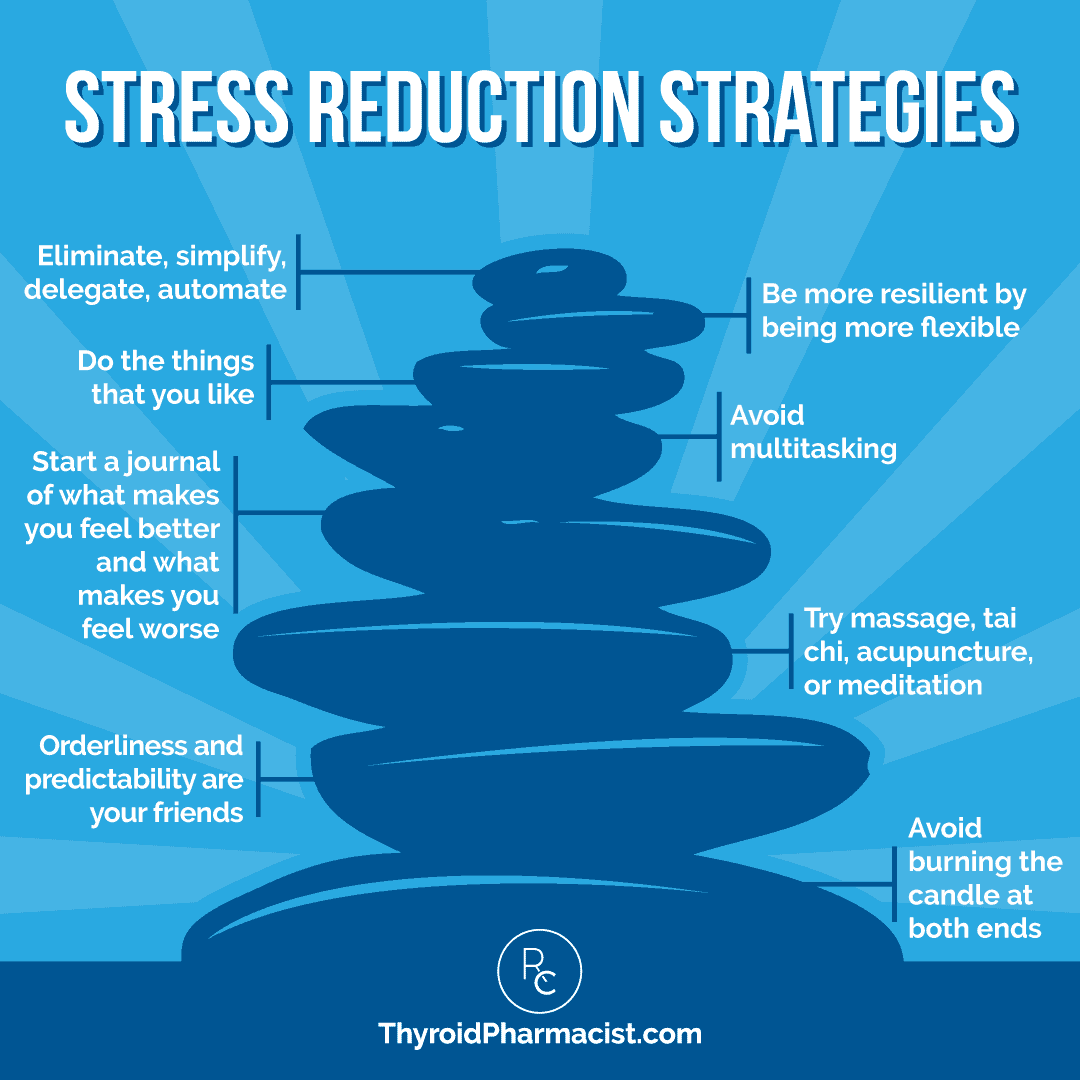
8. Practice Mindfulness
Mindfulness is a term used to describe being conscious and aware of the present moment. This involves us observing our thoughts and feelings, without “reacting” to them. This is probably the most important suggestion: practicing mindfulness will allow you to take deliberate control of your thoughts and emotions, and is a lifelong strategy that will help you in any challenging situation.
I usually spend time with each of my clients who struggle with anxiety, working on specific exercises and methods to help them get centered and in control when anxiety strikes. These strategies also work to prevent anxiety.
Some of my favorite mindfulness practices include:
- Meditation – This can improve focus, reduce anxiety, and boost hormones. I really like the Muse headband for developing a meditation habit.
- Yoga – Gentle forms of yoga, such as Yin Yoga and Hatha Yoga, have been shown to calm the nervous system and relax the mind.
- Adult Coloring – Filling in a fun coloring book (that does not take too much brain power) can help you focus your thoughts and explore the emotions that might be increasing your anxiety.
- Manifesting – This means being the creator of your own destiny! Set a vision for what you want (or how you want to feel), have a clear intention that your vision will become a reality, and align your actions around your vision.
Whatever you can do to shut down your worried brain, for even just a few minutes a day, will help you in the long term.
Advanced Strategies for Anxiety Reduction
If you have a resistant case of anxiety, or if you are going through a particularly anxious period, it may be time for you to consider some more advanced strategies.
9. Neurotransmitters
GABA is our naturally occurring neurotransmitter that is known to produce calmness, reduce tension and reduce anxiety.
Benzodiazepine medications (that produce central nervous system depression, such as Valium and Xanax) and anti-anxiety drugs target this pathway and are very effective at reducing anxiety. Unfortunately, they are habit forming and produce unwanted side effects. This is because, like many drugs, they have a high affinity for the receptors in our bodies. In very simple terms, they crank up the receptors to overdrive, instead of balancing them like naturally-occurring GABA does.
Luckily, GABA is available as a supplement.
When I first heard about using GABA orally as a supplement, I didn’t think it would be helpful because the molecule size is too large to cross the blood-brain barrier – but alas, neurotransmitters are also produced in our gut, and thanks to the intricate feedback system within our body, taking GABA orally still sends signals to our brain and body to relax.
According to Trudy Scott, who specializes in anxiety, chewable forms tend to work better, as they are more readily absorbed through our mucous membranes.
People who take GABA report feeling lighter, as well as less anxious and less irritable. They may also experience more muscle relaxation and find themselves being able to laugh more. Benzodiazepine and alcohol, on the other hand, can leave us with a drugged feeling, and a sense of “freaking out” when the receptors in our bodies are overstimulated.
Some GABA supplements that I like include GABA Calm by Source Naturals, PharmaGABA by Designs for Health, and GABA by Pure Encapsulations.
10. Reprocessing Past Traumas
If your anxiety results from events that occurred in your past, utilizing therapy may be the path to reducing or eliminating your anxiety. In many cases, this will also help your thyroid.
Traumatic events that aren’t properly processed and continue to haunt us are, in my opinion, no different than walking around full of toxins in our bodies. They are bound to make us sick, eventually. Extensive research I’ve cited in Hashimoto’s Protocol, has established a causal link between trauma and autoimmune disease. [13]
While there is certainly a physical side of Hashimoto’s, our whole body is a system with intricate feedback loops – and in that system, we can’t ignore our mind and emotions.
It took me many years to realize this, but my anxiety over losing my husband while he was jogging, as ridiculous as it sounds, was not just stemming from the attack on my thyroid, but from past trauma as well.
Before I met my husband, I had lost a loved one to a sudden, unexpected death. My Hashimoto’s symptoms worsened after this loss, as did my anxiety. I know I’m not alone in this, as 18 percent of people with Hashimoto’s who took my 2015 survey reported that they had lost a loved one before their Hashimoto’s diagnosis, and other clients have reported losing loved ones as significant exacerbating factors.
While I sought grief therapy for my loss, this sudden tragedy continued to unconsciously replay inside of my nervous system. Many years later, I frequently had dreams, nightmares, and flashbacks related to this loss. It wasn’t until I did a targeted therapy known as EMDR, that I was able to overcome the trauma associated with losing a loved one.
EMDR, or Eye Movement Desensitization and Reprocessing, is a method used by psychotherapists to help people eliminate the lasting effects of traumatic events. [14] This method can help people overcome traumatic events when other methods fail.
Francine Shapiro, PhD, who noticed that certain eye movements reduced the intensity of her disturbing thoughts and made her less anxious during a walk in nature, initially developed this method. She tested the method with trauma victims and published her findings in 1989, establishing it as an evidence-based level treatment for trauma and post-traumatic stress disorder. I highly recommend working with a therapist who specializes in EMDR if you have encountered traumatic events in your past. I assure you, you can get past them.
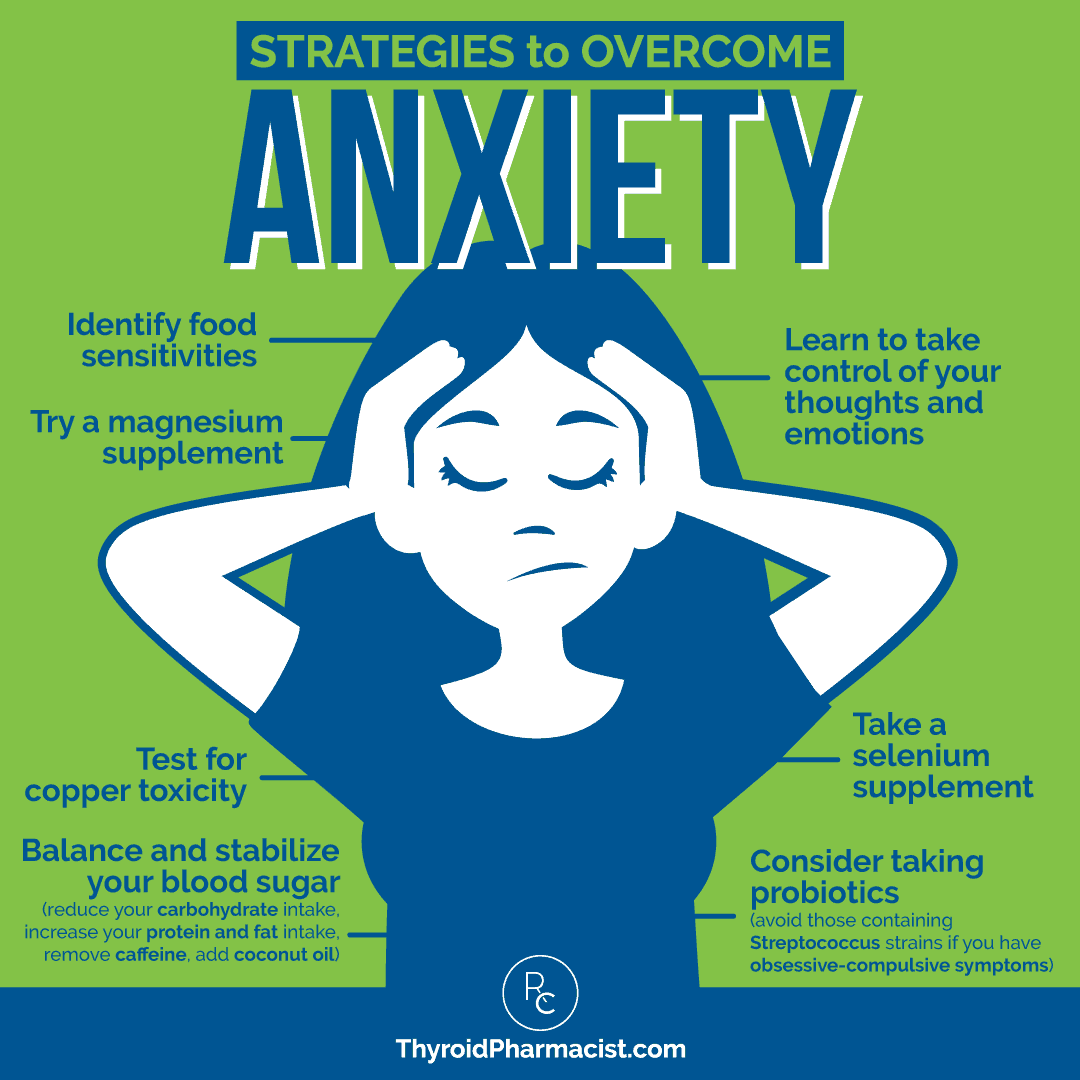
Other Things to Consider
If your anxiety continues with all of the above interventions, you may also want to consider diagnosing and addressing the following conditions:
- Pyroluria is a genetically-acquired chemical imbalance that can cause shyness, introversion, and symptoms related to anxiousness and shyness, including social anxiety. It has been linked to zinc deficiency, and you can read more about that in my article on zinc and Hashimoto’s. [15]
- Copper toxicity can lead to anxiety, panic disorders, sleep issues, paranoia, and in severe cases, psychosis. [16]
There are a few additional therapies that may prove effective if the above approaches aren’t working for you:
- Neurofeedback – This is a form of biofeedback that uses real-time displays of brain activity to help self-regulate brain function. Research has shown its effectiveness for a variety of brain-related conditions, including anxiety. [17] I like the Neuroptimal system and recommend finding a local neurofeedback practitioner in your area who has one.
- Nutritional lithium – This is an essential micronutrient with some chemical properties similar to calcium and magnesium. Lithium has a long history of clinical use for supporting healthy mood and behavior. Mechanisms for this involve promoting the neurotransmitter activity of dopamine (our “happy hormone”) and serotonin (a “stress reducing” hormone). Taken at low doses of 1-5 mg per day, nutritional lithium can help calm anxiety. [18] Please check with your medical practitioner to determine a dose that is right for you.
- Homeopathy – The theory behind this form of alternative medicine is that “like cures like.” In other words, a substance that causes unwanted symptoms in a healthy person might cure those symptoms in someone who is ill. To create a homeopathic remedy, tiny amounts of a natural substance (from plants, animals or minerals) are diluted in water or alcohol, then administered as a means of triggering the body’s natural defenses. Try Rescue Remedy, which is a blend of flowers known to help calm the nerves.
Book Recommendations
I’m so excited to share with you that my newest book, Adrenal Transformation Protocol, has been life-changing for those experiencing anxiety. The book, based on my signature Adrenal Transformation Program, outlines a four-week program to balance your stress response and increase your resilience to whatever life throws at you.
Results of this program have been incredible for those with anxiety – 86 percent of participants reported reduced anxiety by the end of the program. Anecdotally, many people start to feel better within a few weeks. Additionally, 92 percent had reduced mental fog, 89 percent reported reduced fatigue, and 85 percent felt less irritable.
The protocol is truly transformative for people who experience anxiety. I was one of them! Before I started working to heal my Hashimoto’s, part of which included healing my adrenals, I experienced horrible anxiety and panic attacks that left me feeling out of control.
Healing my adrenals was the thing that really shifted me from a constantly anxious state, to finally being able to feel calm, relaxed, and in control.
Adrenal Transformation Protocol comes out in just a couple weeks, and I highly recommend pre-ordering it so that it’s on your doorstep on the day it’s released, April 18th.
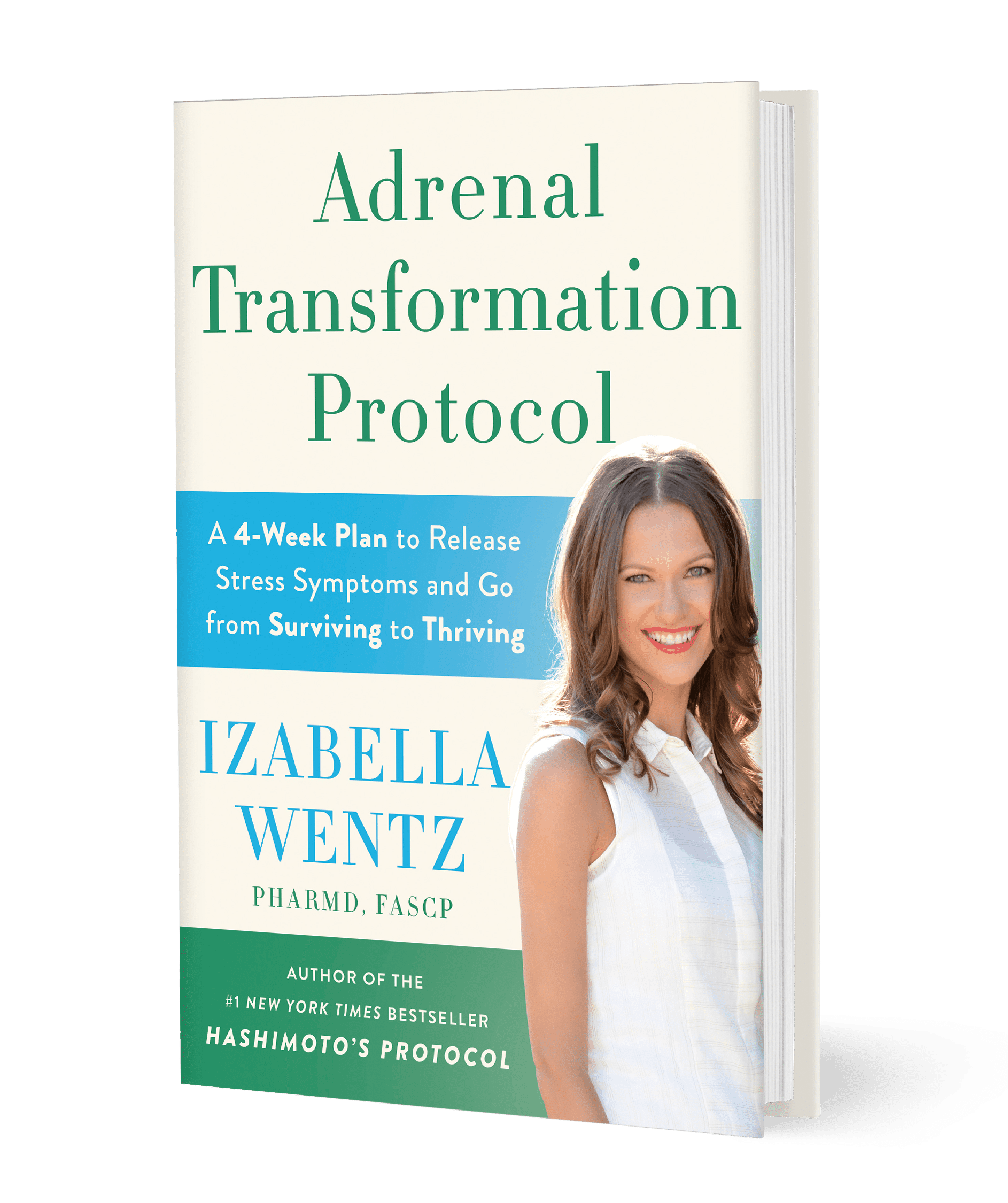
Here are some other books that I highly recommend for anyone with anxiety:
The Takeaway
Here’s the takeaway: you are NOT going crazy! Anxiety, as well as other mood disorders such as depression, can be misdiagnosed and have thyroid imbalances as an underlying root cause. Of course, the root cause of your anxiety may be different from another person’s. But with the right interventions, you can improve your anxiety and get back to living out your dreams and the life you have imagined – without fears or limitations.
(Please note: the suggestions in this article are not meant to replace your physician’s advice; please consult with your doctor before adjusting any medication prescriptions.)
Many people who experience anxiety and thyroid issues may also have adrenal dysfunction from prolonged periods of stress. In fact, I often find adrenal dysfunction as a root cause of Hashimoto’s. Anxiety is one of the most common symptoms that shows up with adrenal dysfunction, and I know from personal experience that it may be difficult to fully resolve anxiety without healing your adrenals. This is why I’m so excited about my new book, Adrenal Transformation Protocol, coming out soon! It’s a must-have for anyone experiencing unresolved anxiety.
I hope this helps, and I wish you all the best on your health journey!
In the meantime, here’s an image you can print out to help you remember some of the best ways to help your anxiety:
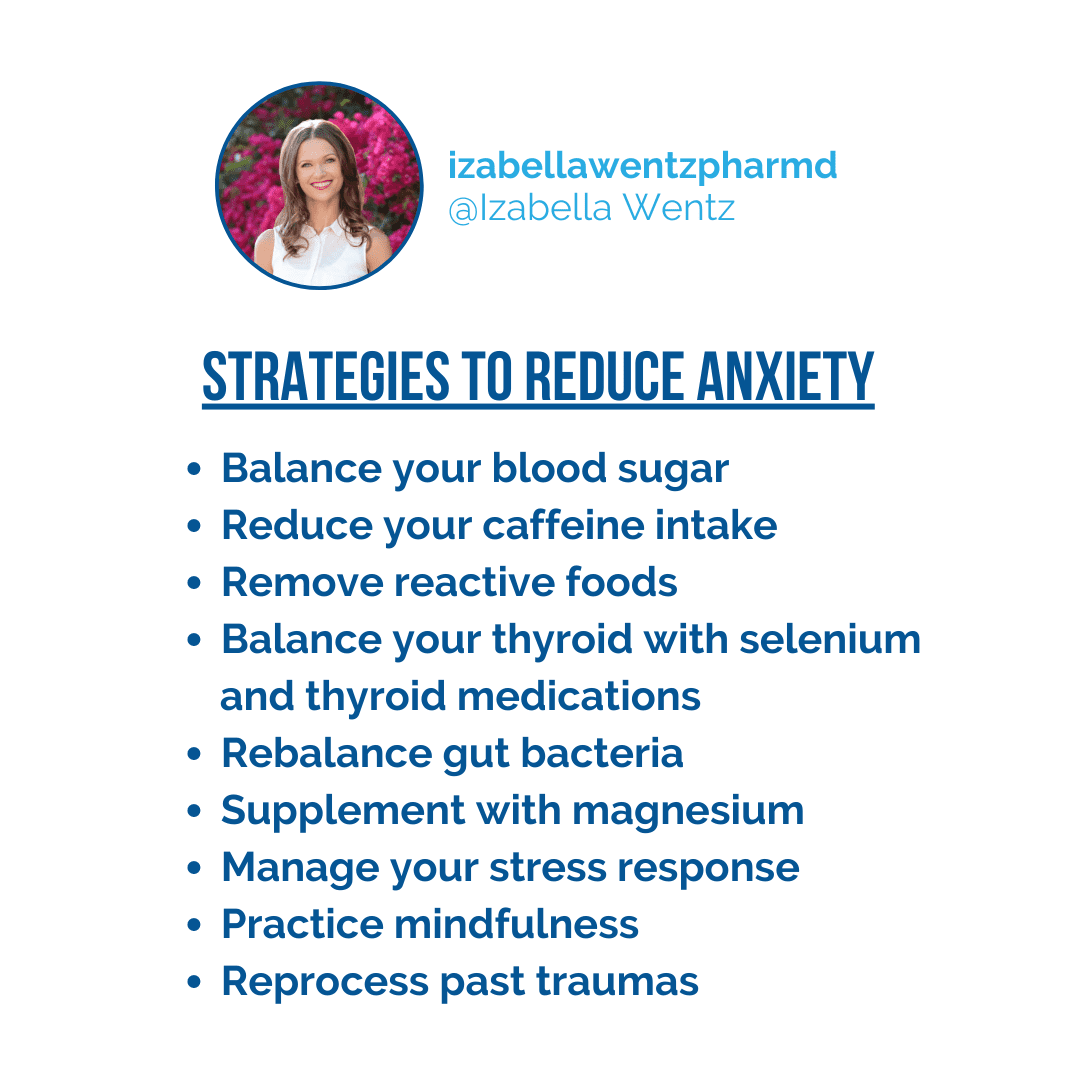
P.S. You can download a free Thyroid Diet Guide, 10 thyroid-friendly recipes, and the Nutrient Depletions and Digestion chapter of my first book for free by signing up for my newsletter. You will also receive occasional updates about new research, resources, giveaways, and helpful information.
For future updates, make sure to follow us on Facebook, Instagram, TikTok, and Pinterest!
References
[1] Carta MG, Loviselli A, Hardoy MC, et al. The link between thyroid autoimmunity (antithyroid peroxidase autoantibodies) with anxiety and mood disorders in the community: a field of interest for public health in the future. BMC Psychiatry. 2004;4:25. Published 2004 Aug 18. doi:10.1186/1471-244X-4-25
[2] Ramic E, Prasko S, Gavran L, Spahic E. Assessment of the Antidepressant Side Effects Occurrence in Patients Treated in Primary Care. Mater Sociomed. 2020;32(2):131-134. doi:10.5455/msm.2020.32.131-134; Edinoff AN, Nix CA, Hollier J, et al. Benzodiazepines: Uses, Dangers, and Clinical Considerations. Neurol Int. 2021;13(4):594-607. Published 2021 Nov 10. doi:10.3390/neurolint13040059
[3] Laugharne J, Lillee A, Janca A. Role of psychological trauma in the cause and treatment of anxiety and depressive disorders. Curr Opin Psychiatry. 2010;23(1):25-29. doi:10.1097/YCO.0b013e3283345dc5
[4] Martin EI, Ressler KJ, Binder E, Nemeroff CB. The neurobiology of anxiety disorders: brain imaging, genetics, and psychoneuroendocrinology. Psychiatr Clin North Am. 2009;32(3):549-575. doi:10.1016/j.psc.2009.05.004
[5] Aucoin M, Bhardwaj S. Generalized Anxiety Disorder and Hypoglycemia Symptoms Improved with Diet Modification. Case Rep Psychiatry. 2016;2016:7165425. doi:10.1155/2016/7165425
[6] Broderick P, Benjamin AB. Caffeine and psychiatric symptoms: a review. J Okla State Med Assoc. 2004;97(12):538-542.
[7] Sachs M, Förster H. Untersuchungen über die Wirkung von Coffein auf ausgewählte Stoffwechselparameter in vivo [Effect of caffeine on various metabolic parameters in vivo]. Z Ernahrungswiss. 1984;23(3):181-205. doi:10.1007/BF02021472
[8] Wichman J, Winther KH, Bonnema SJ, Hegedüs L. Selenium Supplementation Significantly Reduces Thyroid Autoantibody Levels in Patients with Chronic Autoimmune Thyroiditis: A Systematic Review and Meta-Analysis. Thyroid. 2016;26(12):1681-1692. doi:10.1089/thy.2016.0256
[9] Vogel L. Growing consensus on link between strep and obsessive-compulsive disorder. CMAJ. 2018;190(3):E86-E87. doi:10.1503/cmaj.109-5545
[10] Boyle NB, Lawton CL, Dye L. The effects of magnesium supplementation on subjective anxiety. The effects of magnesium supplementation on subjective anxiety. Magnes Res. 2016;29(3):120-125. doi:10.1684/mrh.2016.0411
[11] Papadopol V, Nechifor M. Magnesium in neuroses and neuroticism. In: Vink R, Nechifor M, eds. Magnesium in the Central Nervous System. Adelaide (AU): University of Adelaide Press; 2011.
[12] Fromm L, Heath DL, Vink R, Nimmo AJ. Magnesium attenuates post-traumatic depression/anxiety following diffuse traumatic brain injury in rats. J Am Coll Nutr. 2004;23(5):529S-533S. doi:10.1080/07315724.2004.10719396
[13] Dube SR, Fairweather D, Pearson WS, Felitti VJ, Anda RF, Croft JB. Cumulative childhood stress and autoimmune diseases in adults. Psychosom Med. 2009;71(2):243-250. doi:10.1097/PSY.0b013e3181907888
[14] Valiente-Gómez A, Moreno-Alcázar A, Treen D, et al. EMDR beyond PTSD: A Systematic Literature Review. Front Psychol. 2017;8:1668. Published 2017 Sep 26. doi:10.3389/fpsyg.2017.01668
[15] Scott T, Schuler C. How Zinc and Vitamin B6 Prevent Pyroluria and Social Anxiety. Presented as part of the Anxiety Summit; June 22, 2014.
[16] Royer A, Sharman T. Copper Toxicity. In: StatPearls. Treasure Island (FL): StatPearls Publishing; March 26, 2022.
[17] Hammond DC. Neurofeedback with anxiety and affective disorders. Child Adolesc Psychiatr Clin N Am. 2005;14(1):105-vii. doi:10.1016/j.chc.2004.07.008
[18]Jones G, Rong C, Vecera CM, et al. The role of lithium treatment on comorbid anxiety symptoms in patients with bipolar depression. J Affect Disord. 2022;308:71-75. doi:10.1016/j.jad.2022.04.025
Note: Originally published in February 2016, this article has been revised and updated for accuracy and thoroughness.
